- Home
- Warhammer 40K
Forge Master - David Annandale
Forge Master - David Annandale Read online
PROLOGUE
A scream.
It had no sound, no breath and no voice. And yet it fell upon him with claws of grief. The scream grew until its non-sound tore his soul apart.
Elisath woke to agony. He had done so for days, weeks; long enough for time to blur, for the past and the future to be lost in an undifferentiated present of drudgery and beatings. His material reality was so present in its pain that it had overwhelmed his senses, shattered his concentration and cut him off from anything other than the torture of his body. The orks had worked him until he had given out. His body was old, weaker than those of the other eldar slaves. His eyes fell on his hands, on the long fingers so translucent, already so far gone towards crystallisation. He was a long way down the Path of the Seer. He had travelled so far that the end of his bodily existence was the shaping fact of his reality. Every perception was filtered through the imminence of his fusion with the infinity circuit. Or so it had been before his capture. The orks had turned him from a being of spirit to a being of nerve endings. But when he could work no longer, they hadn’t killed him. They had taken everything from him. They had even stolen his waystone, either through greed or instinctive cruelty. But they kept him alive. Perhaps they had other uses in mind for an eldar farseer. As brutish as the orks were, they had a cunning that was dangerous to dismiss. Especially their leader.
So Elisath woke to agony, but that was nothing new. The new thing, the terrible novelty, was that he hadn’t been jolted to consciousness by a kick in the ribs or a whip across the back. He had been woken by an even greater agony: he had heard his brother’s psychic death cry. It had resonated in his mind and soul as if it were his own scream, but because it was not, it carried the extra charge of consuming grief. And there was still worse. Beyond the pain, beyond the grief, there was the knowledge of what his brother’s end meant. He had a responsibility now, one he couldn’t fulfil.
The consequences were the raw stuff of despair. They did not take a farseer to predict. The shard of Kaela Mensha Khaine was his to guard and protect. He could not do so, not when he couldn’t even help himself. Broken and in fetters, he had no recourse other than to pray to murdered gods and a splintered one that the shard remain hidden. He tried to divine if it would, but when he sent his consciousness out onto the skein, he ran into the disordered, psychic fury and energy of the orks. The threads of possibility were altered and torn so quickly, and so chaotically, that he could follow no coherent pattern, and the orks’ psychic presence, an incandescence of exuberant anger, threatened to drown him. And he couldn’t venture any further than the immediate disorder. He had no runes. They, too, had been taken from him. He had nothing to guide him out and back along the temporal weave.
Something was coming. Elisath heard the boisterous cacophony of the guards change in tone. Brawls and barbaric laughter ceased. In their place came awe, excitement and fear.
Elisath looked up. His cell was little more than a closet, a place to store a possession rather than a living thing. It was barely high enough to sit up in, and he could not lie down without curling foetal-tight. The floor was deep in filth, an archaeology of misery. The door to the cell was, like so much of this ship, crude, clumsy but effective. It was a patchwork of scrap metal, welded together into an object as strong as its edges were ragged. Instead of bars, Elisath looked through gaps and rips in the metal. They were wide enough for him to see the ship’s corridor. They were so narrow, he couldn’t pass his arm through without slicing open his wrists. He watched, waiting, as the creature approached. The ripples of its presence spread before it. Orks howled in ecstatic worship. Prisoners whimpered, hoping for a quick death. Crouching, Elisath kept his gaze steady. He feared ends far worse than his own demise.
He could hear the beast coming now, its footsteps a pounding drum of war on the metal decking. The booming resonated down Elisath’s spine. It grew louder, shaking dust and powdered rust from the door. Just outside his cell, the monster stopped. The only sound now was the ork’s breathing. It was a deep, growling rattle, the sound of giant strength and hair-trigger rage reverberating in a vast, echo-chamber of a chest.
The ork blotted out the dim lights of the corridor. Elisath saw nothing but an immense silhouette. It was broader than he was tall. It was violence made flesh. And it was the ruler of an empire.
Elisath couldn’t see the ork’s eyes, but he could tell from the tilt of its head that it was looking at him. It was pausing, thinking. A meditating ork, in Elisath’s experience, was one of two things. It was either comically idiotic, or fantastically dangerous. There was nothing humorous in the shape before him. There was only doom.
The ork whirled and bellowed an order. Its voice was a rasping thunder. It strode off. As it did so, Elisath collapsed against the rear wall of his cell. He gasped. The tangle of possible futures had suddenly cleared. Elisath could still see no further forwards than he could before, but now there was no need to know more. The ship had changed course. He knew where it was heading.
No, he thought. Not there. Not this ork. And still, his knowledge was useless. Still, all he could do was pray.
CHAPTER ONE
What are you? The question lingered. He could not exorcise it.
The predator lurked at the outer edges of the Lepidus System. It moved slowly through the void, waiting for its prey. It was not a sleek hunter, but it was immense. Over four thousand metres long, its hull was thick-bodied, with a massively armed prow that projected forwards like a clenched fist. There was nothing subtle about its design. It was a monster whose every rivet and plate were slaved to a single purpose: the brutal annihilation of its enemies. Now it stalked one particular target, one that had to be lured into the killing ground.
The predator was the Verdict of the Anvil, strike cruiser of the Salamanders reserve Fifth Company. On the elevated strategium of the cathedral-like bridge, Captain Mulcebar briefed his officers. His broad, heavy-browed countenance was not one that smiled easily. He had the visage of a stern, impassive god of war, carved out of onyx, his red eyes the glow of the furnace deep within. But as the captain spoke, Sergeant Ba’birin thought he could detect a hard satisfaction in Mulcebar’s tone. ‘The missions undertaken by our brothers in the Raven Guard and the White Scars have been successful. The orks have been dealt severe blows on the planet and its moon. Of more immediate concern to our mission, these two strikes appear to have had the desired effect. Our sensorium has detected the warp displacement of a large body, accompanied by numerous smaller ones, on approach.’
‘He is coming,’ Sergeant Neleus said.
Mulcebar nodded. ‘So it would seem.’
There was a stirring among the officers, an anticipation of battle that bordered on eagerness. For some, and Ba’birin was one of those, the wait had been galling. First, the Salamanders had been diverted from their original course. They had been bound for Antagonis, there to assist the Black Dragons combat a plague of undeath. But a more immediate threat to the wider Imperium had declared itself in this system, and so they had responded, only to wait. While the Raven Guard and the White Scars fought with honour, the Salamanders had been stuck out here, hundreds of millions of kilometres from the fields of battle, preparing for an opportunity that might never materialise. Their target was the ork leader himself. The Overfiend. The invasion of the system was his doing, but there had been no possibility of retaliation until now. As far as Imperial intelligence could tell, the Overfiend remained within an enormous fleet, one far beyond the ability of the currently assembled human forces to tackle. But while they could not go to him, they could make him come to them. The broader strategic goal of killing the Overfiend’s
lieutenants had been to lure the monster out. And here he came.
The wait was over. The forge of war called.
What are you?
The words looped, a pulsing beat through Ha’garen’s head, as he headed for the enginarium. He had not thought the question needed asking. He had not thought about such a question at all. He was himself, as he had always been. There had been changes, these last years. He was aware of them, even if there was no emotional weight that accompanied that awareness. But the essential truth remained. He was Ha’garen, Techmarine of the Salamanders Fifth Company. How could there be any questions to ask?
But one had been asked, and not who are you?, as damning and doubting as that would have been. What are you? The doubts were far more fundamental, his identity questioned down to its absolute core. And the question had been asked by not just any brother, but by Ba’birin.
Ha’garen’s mind, seeking the roots of its unease, flew back to Heliosa, the Beacon City of the Salamanders’ home planet of Nocturne, more than a century ago. Two aspirants survived the trials to become Scouts. That they had known each other before their first true testing on the anvil was unusual. What was unheard of was that they came, essentially, from the same house. Ba’birin was the son of a dealer in sa’hrk hides. His family had taken in the orphaned Ha’garen when his parents had died in the Time of Trials. The two boys had bonded. They were both apprentices to Ba’birin’s father, though Ha’garen had shown none of his foster brother’s promise as a tanner. Then they were recruited. They triumphed together. They became Scouts together.
They became Salamanders together. Fireborn.
For seventy years, they fought side by side, bringing the wrath of Vulkan down on the Emperor’s enemies. Each knew the other’s combat craft as intimately as his own. Their war was a synchronous meshing of lethal gears, never retreating, always implacably advancing on the foe. Their styles were different but complementary. Ba’birin was as mercurial as a Salamander ever became, and had a gift for improvisation. His feints and counter-attacks surprised the enemy, but not his battle-brother, who provided the anchor for their joint assaults. Ha’garen was the constant, unwavering, metronomic beat of relentless war upon which Ba’birin built his flourishes and variations. Ha’garen was the anvil against which Ba’birin’s spirited hammer smashed xenos, heretic and traitor.
For seventy years, they forged a chain of comradeship. But Ha’garen had a gift with machines. The boy had been hopeless with the organic messiness of hides, but the Space Marine understood the mechanical, and when he spoke to that world, it responded. It was perhaps inevitable, then, that just over thirty years ago, Captain Mulcebar had sent him to Mars.
He returned a Techmarine. And then, before he could regain his bearings after his absence, Nocturne was invaded. Mulcebar and the Fifth were tasked with the defence of Heliosa. Ba’birin and Ha’garen were on the front lines, fighting for the life of the Sanctuary City of their births.
It was not a happy reunion. Ha’garen could recognise strain on Ba’birin’s face, though he did not feel it himself. In fact, he felt very little at all. His induction into the cult of the Omnissiah had tempered his emotions. His passions had flattened out to a steady, tempered mixture of logic and worship. His mind and soul were filled with the mysteries of machines and the litanies of the inorganic. When he had become a Space Marine, he had become something his former, mortal, human self would barely recognise, let alone understand. And he had felt the inevitable distance from mortals that a warrior of the Adeptus Astartes experienced. It was a distance that the Salamanders worked to counteract by remaining a part of the society of Nocturne. It was a distance that had become a yawning abyss when Ha’garen returned from Mars. He did not care to bridge it. The flesh was imperfect, a distraction, an obstacle to be overcome. Ha’garen was aware, he thought, of the degree to which he had changed. He knew that his alterations went far beyond the physical. But he did not consider them so radical as to have destroyed the self he had always possessed. It had survived the ascension to Space Marine. It lived on in the Techmarine.
So he believed.
What are you?
The question had come during the battle of Heliosa. The heaviest fighting on Nocturne had been at the gates of Hesiod. The contingent of the traitor Nihilan’s forces that had besieged Heliosa was little more than a diversion from a diversion, but the kroot and other mercenaries fought there as savagely as anywhere else on the planet. Mulcebar had his squads fight as if to lose Heliosa would be to lose Nocturne. Honour, loyalty and love of the home world demanded nothing less. And so, for the first time in three decades, Ha’garen and Ba’birin were in combat at each other’s side.
Their synchrony had once been such that they had fought like a single machine. Now that a large part of Ha’garen was machine, the unity was lost. Ha’garen could no longer see Ba’birin’s flourishes as anything other than excessive. They were a pointless waste of energy, a deployment of technique for technique’s sake. He saw no need to cater to them, and could not fathom why he once had. They brought terrible wrath down on the enemy, and butchered the foe in numbers that made hills of corpses, but the music of their joint actions was discordant. They fought well because they were Salamanders. They no longer fought well together.
When Nihilan’s terrible weapon blasted Nocturne to the core, the earth heaved and danced, and walls hurled themselves to the ground. The enemy streamed through overwhelmed void shields and into the city. The savages and xenos filth wasted no time in descending upon the civilian population. It was as if they knew they were bound to be defeated, and had decided to enjoy a premature sack of Heliosa rather than face a futile struggle against the unwavering strength of the Salamanders. There was no strategy. There was only the barbaric impulse to cause as much harm as possible before being stopped.
A ten-metre breach in the wall opened at the position held by Ha’garen and Ba’birin’s squad. Ba’birin and three other battle-brothers fell with the stone and rockrete. Rubble pounded the Salamanders. Beneath Ha’garen’s feet, the wall still stood. He looked down and saw his brothers shrugging off the wreckage. They were monuments, animated statues rising from ruins to defy a hostile fate. They were not to be stopped.
Nor were their enemies, who traded indomitable strength for the power of the swarm. Kroot and human stormed into a civilian compound fifty metres back from the wall. The people of Heliosa had the innate strength and resilience of all Nocturneans, and they were armed, but they were no match for the military savagery that came at them. Ha’garen saw Ba’birin lead his group of Salamanders to the defence of the populace. He took in the relative distances between the civilians, invaders and Space Marines. The outcome was obvious. The Salamanders would annihilate the foe, but be too late to prevent the slaughter of the civilians. A few paces to his right there was a heavy bolter turret. Its gunner was dead, but the weapon was still functional. Ha’garen manned it, even as Ba’birin’s voice came in over his comm-bead.
‘Brother,’ Ba’birin said, ‘we could use your assistance.’
Two choices now. The first was whether to join the ground-level combat or hold his position, and it was really no choice at all. To give up any tactical advantage was irrational in the extreme. The second choice was where to aim the turret: turn it to face the interior of the redoubt and provide assisting fire, or train it on the larger body of the enemy still surging towards the breach.
Again, there was really no choice.
Ha’garen opened fire. The turret’s chug-chug-chug was the pounding rhythm of Vulkan’s hammer, the perfect regularity of machined death blasting xenos and heretic mercenaries to bloody pulp.
‘Ha’garen?’ Ba’birin voxed.
‘I am doing what I must, brother,’ Ha’garen responded. And that was not concentrating on a specific skirmish whose outcome would not be affected by any action on his part. He was laying waste to the foe, damaging his war-making capa
city by culling his numbers and slowing his advance. The invaders charged forwards in their hundreds. There were far more than Ha’garen could hope to kill, but they were not infinite. As the turret’s mass-reactive shells exploded flesh and bone, punching bursts of dirt and blood skywards, the assault lost strength and momentum. Ha’garen made a difference.
But not the right one, as far as Ba’birin was concerned. It was the first time Ha’garen had knowingly acted against the wishes of his brother. They had not been in concert; they had been at cross purposes. Ha’garen’s worst sin, it appeared, was a distorted sense of priorities. He learned this after the battle, after the war. Heliosa was secure, and the slow staunching of Nocturne’s wounds had begun. It was then, while Ha’garen was salvaging usable weaponry from the field, that Ba’birin confronted him.
‘You abandoned us,’ Ba’birin said without preamble.
‘I made a decision based on tactical necessities.’
‘The people of Nocturne are our charges.’
It seemed to Ha’garen that his battle-brother was speaking from an impulse of sentiment, not reason. ‘Our duty was the successful prosecution of the war. I followed my duty.’
And then the question came. Ba’birin shook his head. ‘What are you?’ he said, and walked away.
Puzzled, Ha’garen had watched the other Salamander as he receded through smoking metal and charred rubble, then turned back to his work. The question was an odd one, but he did not feel its full weight just then. What he felt was the rift with Ba’birin. To the extent that he still experienced emotions at all, the loss of that comradeship gnawed at him, and would continue to do so in the days and months that followed. It was the news about Argos that turned the question into a refrain that no force of reason or passage of time could exorcise. Argos’s mind had been infected by an enemy attack, turning him from his true course, making him act against his brothers. The Forge Master had realised what was happening and managed to excise the infection, but not before causing considerable damage. The event disturbed Ha’garen. That Argos, one of the mightiest of the Chapter’s Techmarines, could be attacked at such a fundamental level was more than a warning against complacency. Ha’garen was engaged on a path that meant a metamorphosis of body and of self. If the greatest of his kind was vulnerable, then so was he, and how was he to monitor his journey? How was he to know if his transformation took him down deviant paths?

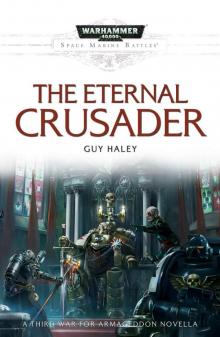 The Eternal Crusader - Guy Haley
The Eternal Crusader - Guy Haley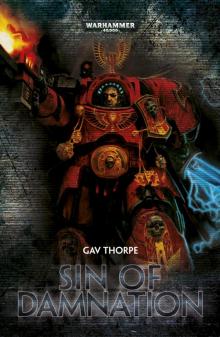 Sin of Damnation - Gav Thorpe
Sin of Damnation - Gav Thorpe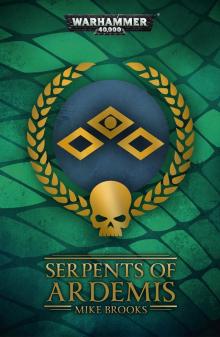 Serpents of Ardemis - Mike Brooks
Serpents of Ardemis - Mike Brooks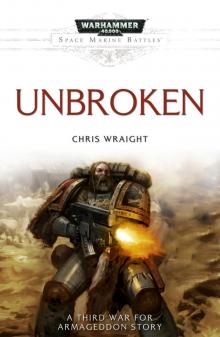 Unbroken - Chris Wraight
Unbroken - Chris Wraight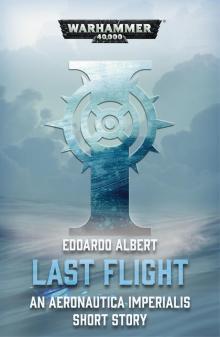 Last Flight - Edoardo Albert
Last Flight - Edoardo Albert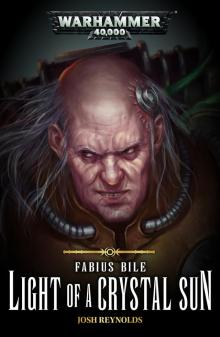 Light of a Crystal Sun - Josh Reynolds
Light of a Crystal Sun - Josh Reynolds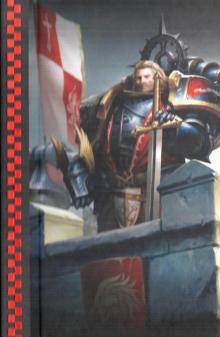 Lion El'Jonson- Lord of the First - David Guymer
Lion El'Jonson- Lord of the First - David Guymer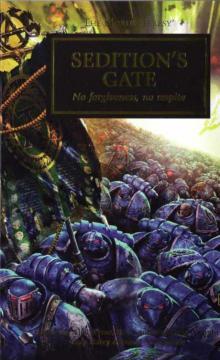 Sedition's Gate - Nick Kyme & Chris Wraight
Sedition's Gate - Nick Kyme & Chris Wraight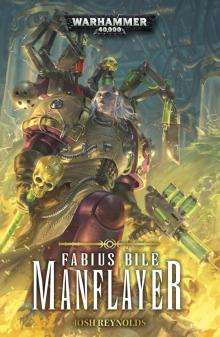 Manflayer - Josh Reynolds
Manflayer - Josh Reynolds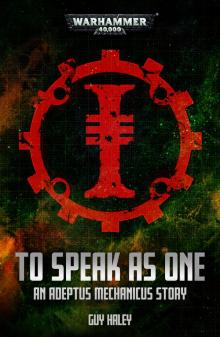 To Speak as One - Guy Haley
To Speak as One - Guy Haley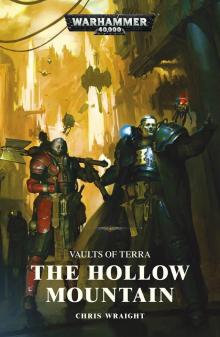 Vaults of Terra- The Hollow Mountain - Chris Wraight
Vaults of Terra- The Hollow Mountain - Chris Wraight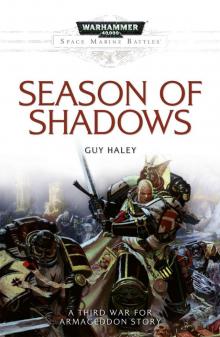 Season of Shadows - Guy Haley
Season of Shadows - Guy Haley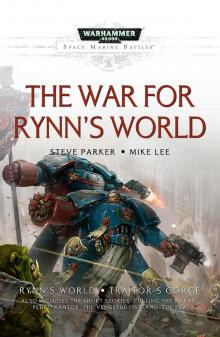 The War for Rynn's World - Steve Parker & Mike Lee
The War for Rynn's World - Steve Parker & Mike Lee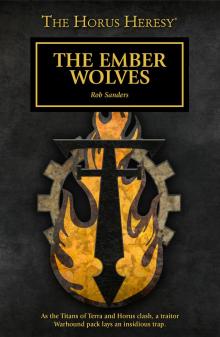 The Ember Wolves - Rob Sanders
The Ember Wolves - Rob Sanders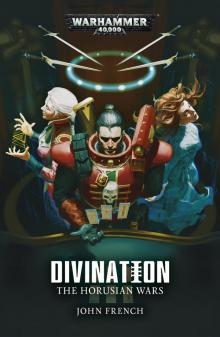 Divination - John French
Divination - John French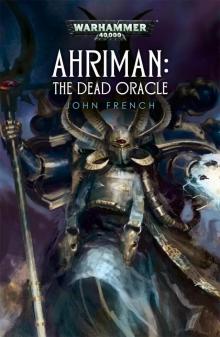 The Dead Oracle - John French
The Dead Oracle - John French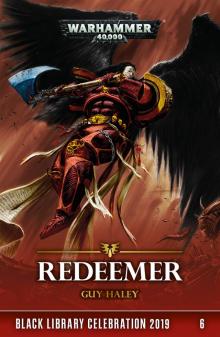 Redeemer - Guy Haley
Redeemer - Guy Haley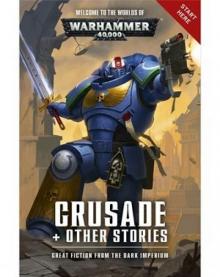 Crusade & Other Stories - Dan Abnett Et Al.
Crusade & Other Stories - Dan Abnett Et Al.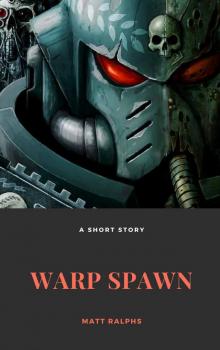 Warp Spawn - Matt Ralphs
Warp Spawn - Matt Ralphs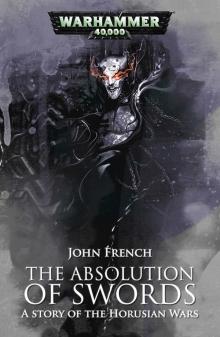 The Absolution of Swords - John French
The Absolution of Swords - John French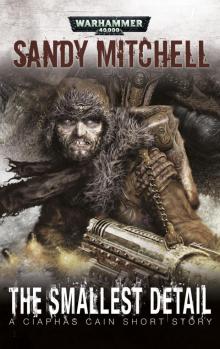 The Smallest Detail - Sandy Mitchell
The Smallest Detail - Sandy Mitchell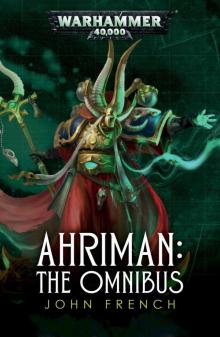 The Omnibus - John French
The Omnibus - John French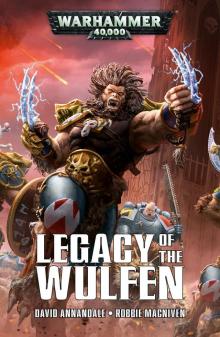 Legacy of the Wulfen - David Annandale & Robbie MacNiven
Legacy of the Wulfen - David Annandale & Robbie MacNiven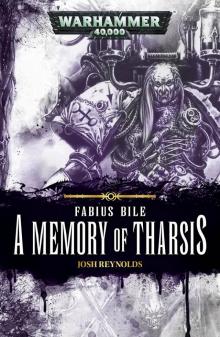 A Memory of Tharsis - Josh Reynolds
A Memory of Tharsis - Josh Reynolds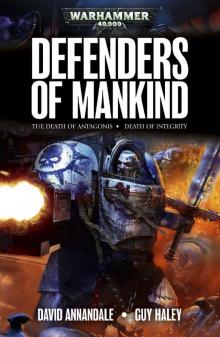 Defenders of Mankind - David Annandale & Guy Haley
Defenders of Mankind - David Annandale & Guy Haley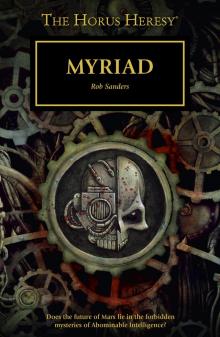 Myriad - Rob Sanders
Myriad - Rob Sanders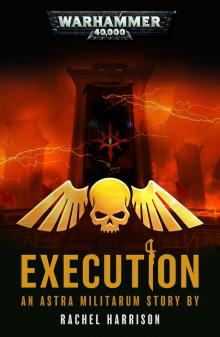 Execution - Rachel Harrison
Execution - Rachel Harrison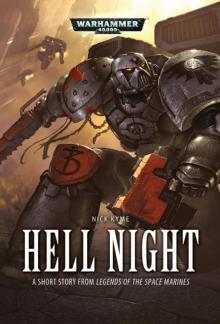 Hell Night - Nick Kyme
Hell Night - Nick Kyme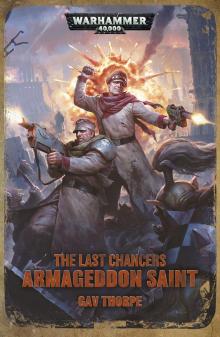 Armageddon Saint - Gav Thorpe
Armageddon Saint - Gav Thorpe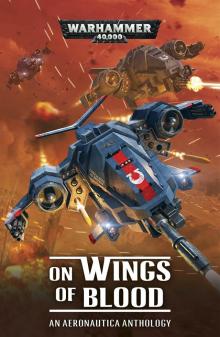 On Wings of Blood
On Wings of Blood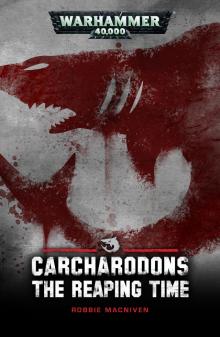 The Reaping Time - Robbie MacNiven
The Reaping Time - Robbie MacNiven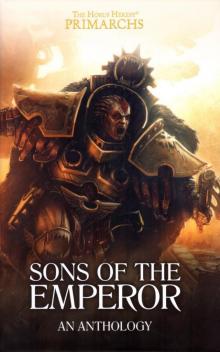 Sons of the Emperor
Sons of the Emperor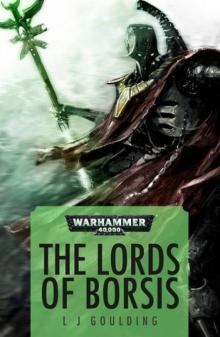 The Lords of Borsis - L J Goulding
The Lords of Borsis - L J Goulding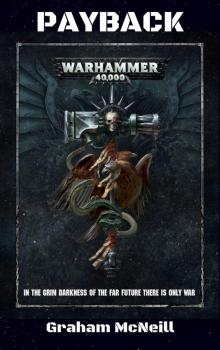 Payback - Graham McNeill
Payback - Graham McNeill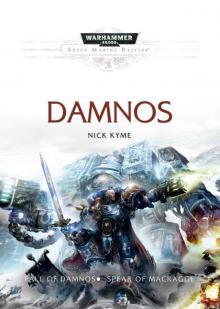 Damnos - Nick Kyme
Damnos - Nick Kyme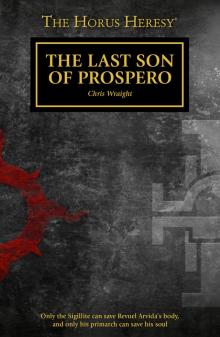 The Last Son of Prospero - Chris Wraight
The Last Son of Prospero - Chris Wraight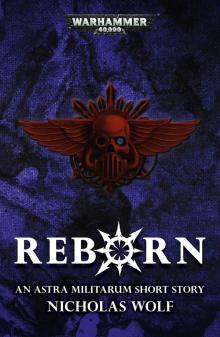 Reborn - Nicholas Wolf
Reborn - Nicholas Wolf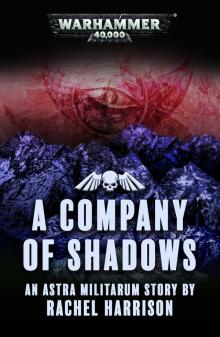 A Company of Shadows - Rachel Harrison
A Company of Shadows - Rachel Harrison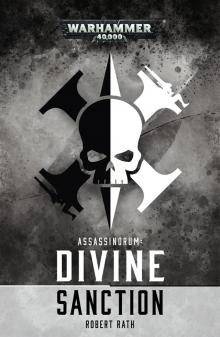 Assassinorum- Divine Sanction - Robert Rath
Assassinorum- Divine Sanction - Robert Rath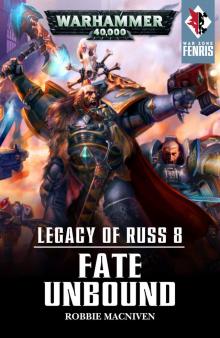 Fate Unbound - Robbie MacNiven
Fate Unbound - Robbie MacNiven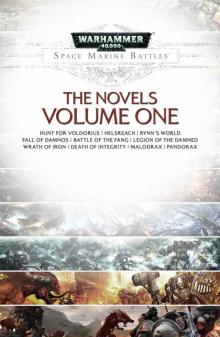 Space Marine Battles - the Novels Volume 1
Space Marine Battles - the Novels Volume 1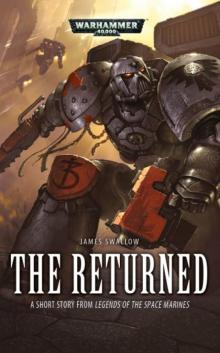 The Returned - James Swallow
The Returned - James Swallow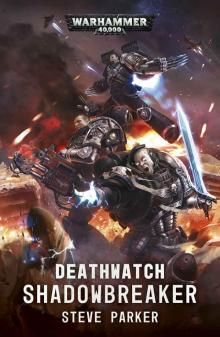 Shadowbreaker - Steve Parker
Shadowbreaker - Steve Parker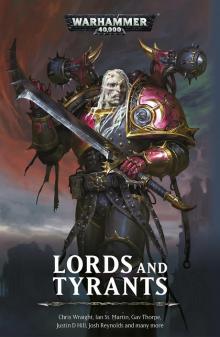 Lords and Tyrants
Lords and Tyrants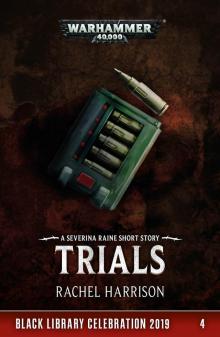 Trials - Rachel Harrison
Trials - Rachel Harrison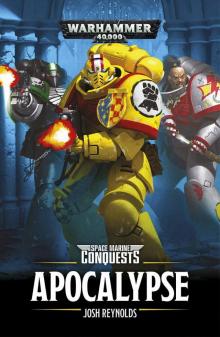 Apocalypse - Josh Reynolds
Apocalypse - Josh Reynolds The labyrinth - Richard Ford
The labyrinth - Richard Ford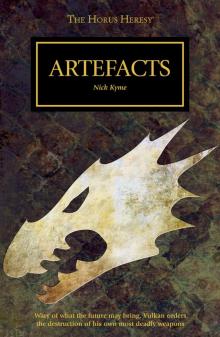 Artefacts - Nick Kyme
Artefacts - Nick Kyme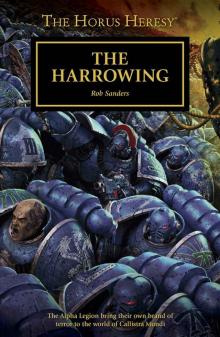 The Harrowing - Rob Sanders
The Harrowing - Rob Sanders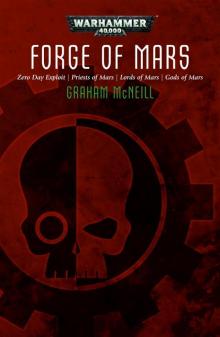 Forge of Mars - Graham McNeill
Forge of Mars - Graham McNeill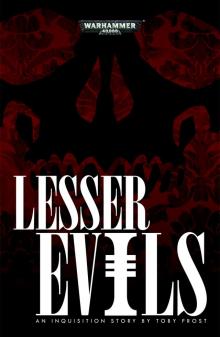 Lesser Evils - Toby Frost
Lesser Evils - Toby Frost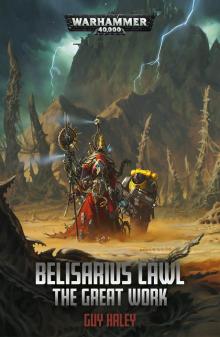 Belisarius Cawl- the Great Work - Guy Haley
Belisarius Cawl- the Great Work - Guy Haley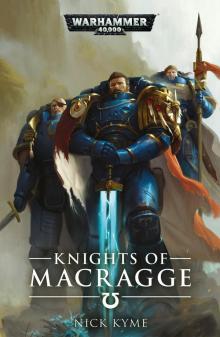 Knights of Macragge - Nick Kyme
Knights of Macragge - Nick Kyme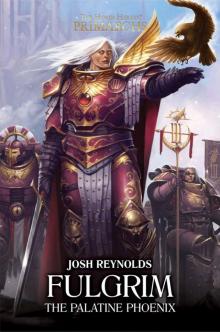 Fulgrim- The Palatine Phoenix - Josh Reynolds
Fulgrim- The Palatine Phoenix - Josh Reynolds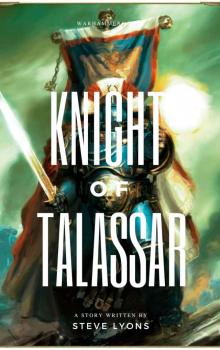 Knight of Talassar - Steve Lyons
Knight of Talassar - Steve Lyons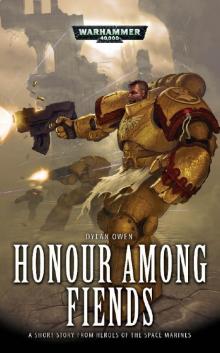 Honour Among Fiends - Dylan Owen
Honour Among Fiends - Dylan Owen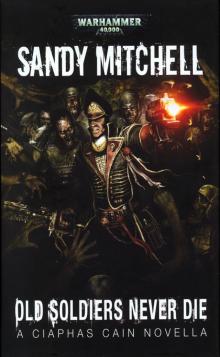 Old Soldiers Never Die - Sandy Mitchell
Old Soldiers Never Die - Sandy Mitchell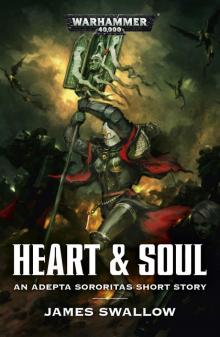 Heart & Soul - James Swallow
Heart & Soul - James Swallow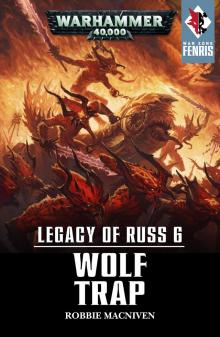 Wolf Trap - Robbie MacNiven
Wolf Trap - Robbie MacNiven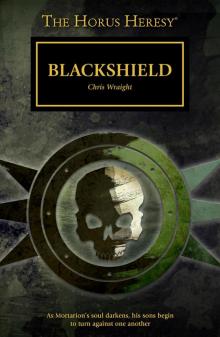 Blackshield - Chris Wraight
Blackshield - Chris Wraight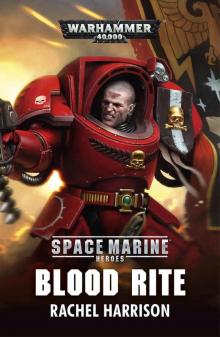 Blood Rite - Rachel Harrison
Blood Rite - Rachel Harrison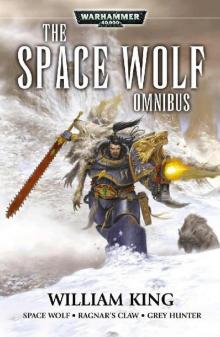 The Space Wolf Omnibus - William King
The Space Wolf Omnibus - William King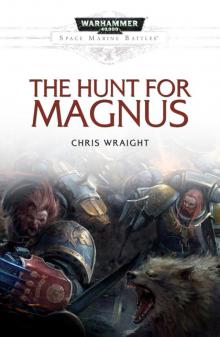 The Hunt for Magnus - Chris Wraight
The Hunt for Magnus - Chris Wraight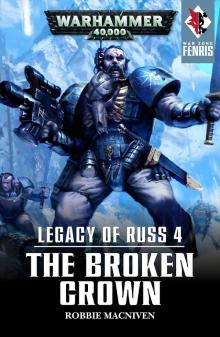 The Broken Crown - Robbie MacNiven
The Broken Crown - Robbie MacNiven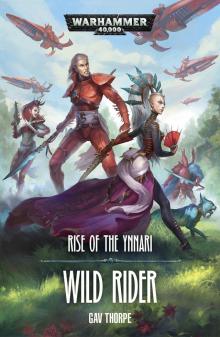 Wild Rider - Gav Thorpe
Wild Rider - Gav Thorpe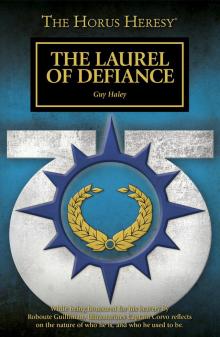 The Laurel of Defiance - Guy Haley
The Laurel of Defiance - Guy Haley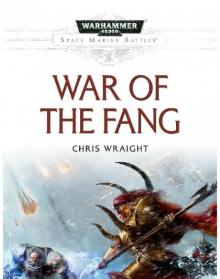 War of the Fang - Chris Wraight
War of the Fang - Chris Wraight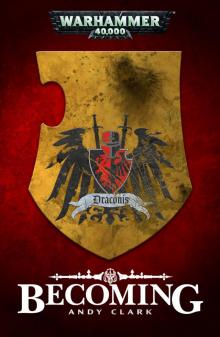 Becoming - Andy Clark
Becoming - Andy Clark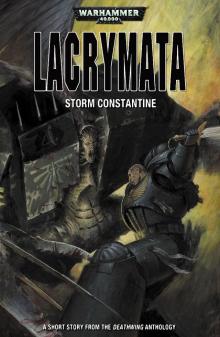 Lacrymata - Storm Constantine
Lacrymata - Storm Constantine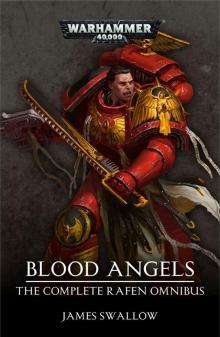 Blood Angels - The Complete Rafen Omnibus - James Swallow
Blood Angels - The Complete Rafen Omnibus - James Swallow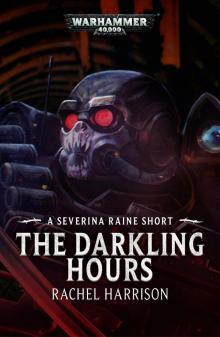 The Darkling Hours - Rachel Harrison
The Darkling Hours - Rachel Harrison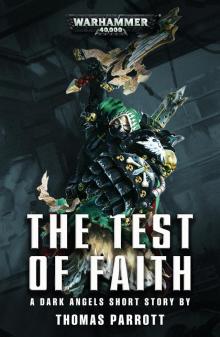 The Test of Faith - Thomas Parrott
The Test of Faith - Thomas Parrott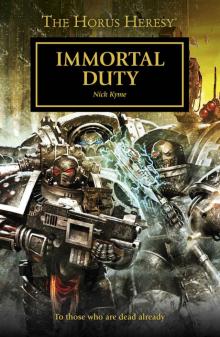 Immortal Duty - Nick Kyme
Immortal Duty - Nick Kyme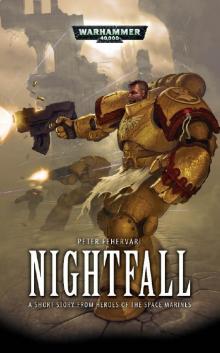 Nightfall - Peter Fehervari
Nightfall - Peter Fehervari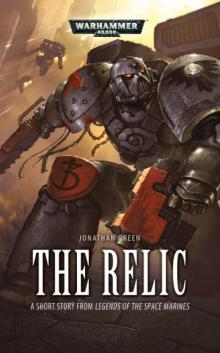 The Relic - Jonathan Green
The Relic - Jonathan Green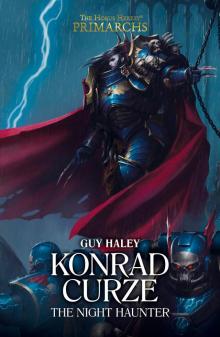 Konrad Curze the Night Haunter - Guy Haley
Konrad Curze the Night Haunter - Guy Haley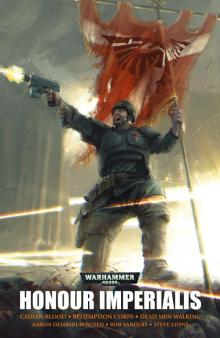 Honour Imperialis - Aaron Dembski-Bowden
Honour Imperialis - Aaron Dembski-Bowden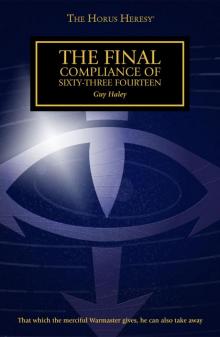 The Final Compliance of Sixty-Three Fourteen - Guy Haley
The Final Compliance of Sixty-Three Fourteen - Guy Haley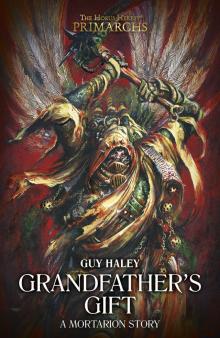 Grandfather’s Gift - Guy Haley
Grandfather’s Gift - Guy Haley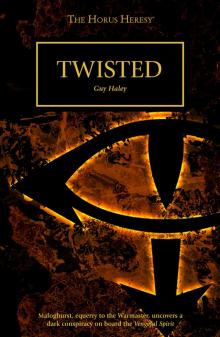 Twisted - Guy Haley
Twisted - Guy Haley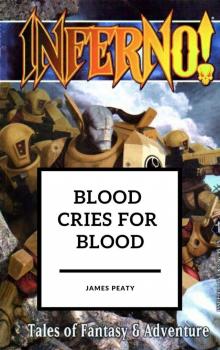 Blood Cries for Blood - James Peaty
Blood Cries for Blood - James Peaty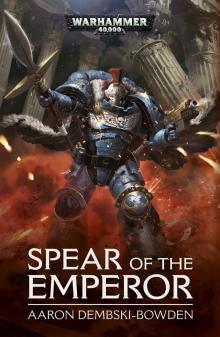 Spear of the Emperor - Aaron Dembski-Bowden
Spear of the Emperor - Aaron Dembski-Bowden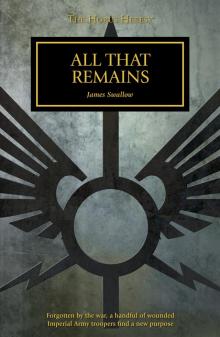 All That Remains - James Swallow
All That Remains - James Swallow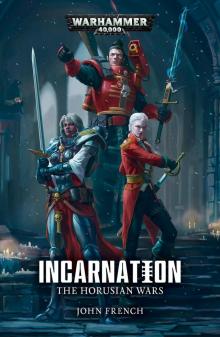 Incarnation - John French
Incarnation - John French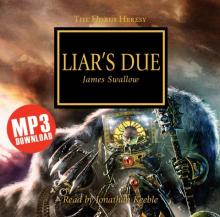 Liar's Due - Ben Swallow
Liar's Due - Ben Swallow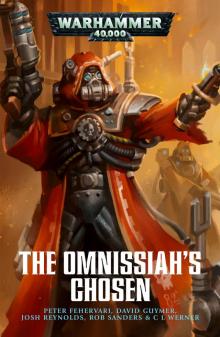 The Omnissiah's Chosen - Peter Fehervari
The Omnissiah's Chosen - Peter Fehervari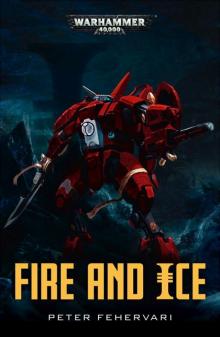 Fire and Ice - Peter Fehervari
Fire and Ice - Peter Fehervari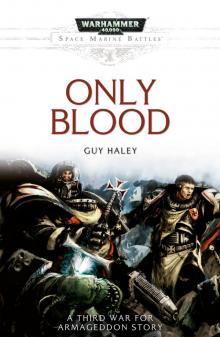 Only Blood - Guy Haley
Only Blood - Guy Haley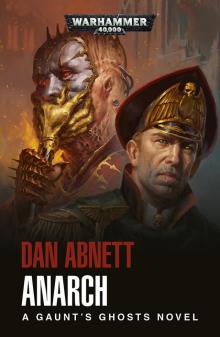 Anarch - Dan Abnett
Anarch - Dan Abnett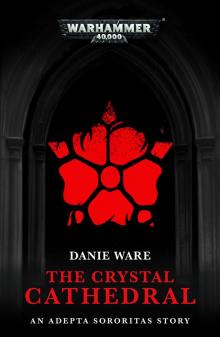 The Crystal Cathedral - Danie Ware
The Crystal Cathedral - Danie Ware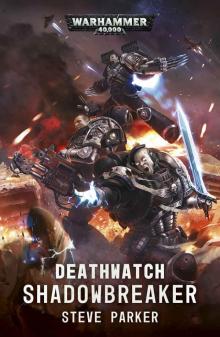 Shadowbreaker
Shadowbreaker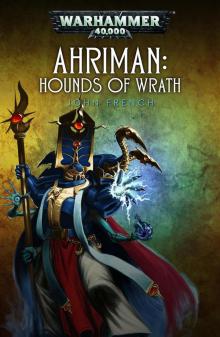 Hounds of Wrath - John French
Hounds of Wrath - John French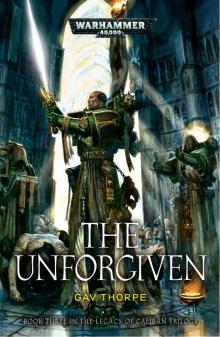 The Unforgiven - Gav Thorpe
The Unforgiven - Gav Thorpe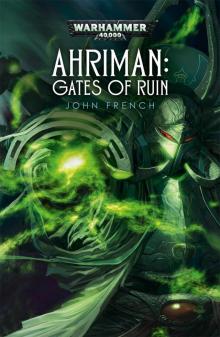 Gates of Ruin - John French
Gates of Ruin - John French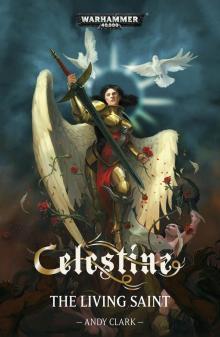 Celestine - Andy Clark
Celestine - Andy Clark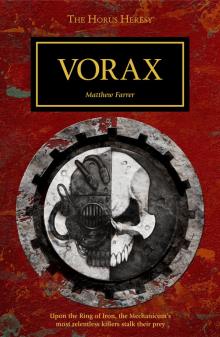 Vorax - Matthew Farrer
Vorax - Matthew Farrer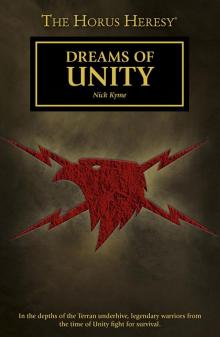 Dreams of Unity - Nick Kyme
Dreams of Unity - Nick Kyme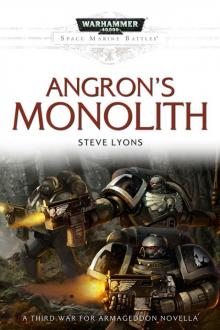 Angron's Monolith - Steve Lyons
Angron's Monolith - Steve Lyons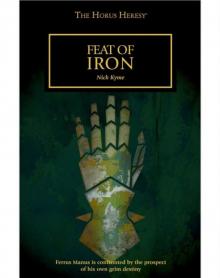 Feat of Iron - Nick Kyme
Feat of Iron - Nick Kyme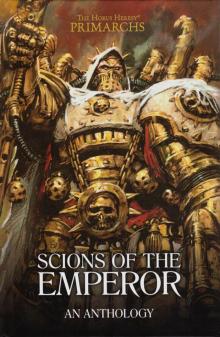 Scions of the Emperor
Scions of the Emperor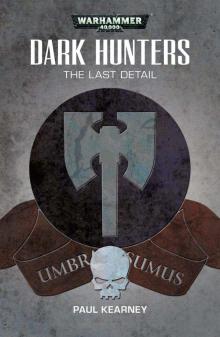 The Last Detail - Paul Kearney
The Last Detail - Paul Kearney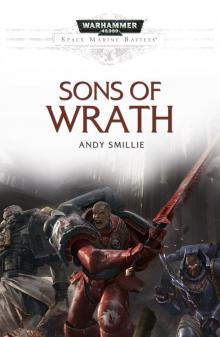 Sons of Wrath - Andy Smillie
Sons of Wrath - Andy Smillie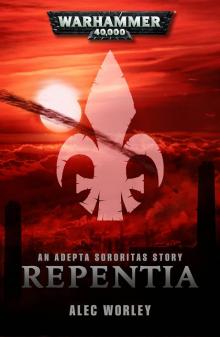 Repentia - Alec Worley
Repentia - Alec Worley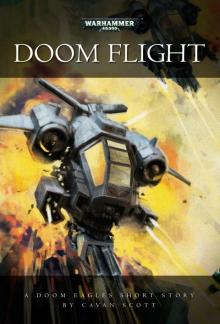 Doom Flight - Cavan Scott
Doom Flight - Cavan Scott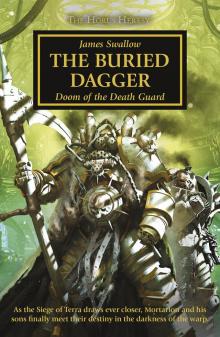 The Buried Dagger - James Swallow
The Buried Dagger - James Swallow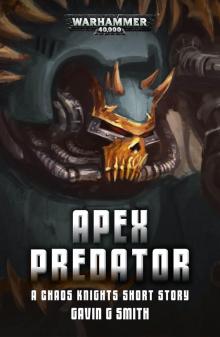 Apex Predator - Gavin G Smith
Apex Predator - Gavin G Smith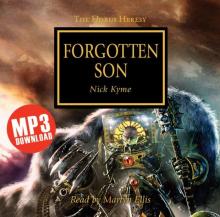 Forgotten Sons - Nick Kyme
Forgotten Sons - Nick Kyme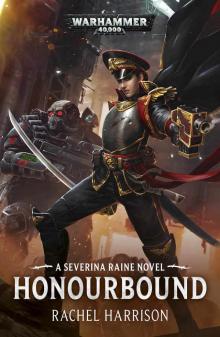 Honourbound - Rachel Harrison
Honourbound - Rachel Harrison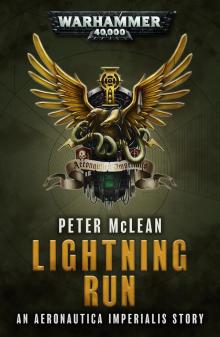 Lightning Run - Peter McLean
Lightning Run - Peter McLean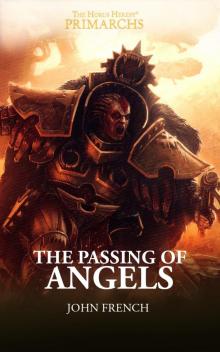 The Passing of Angels - John French
The Passing of Angels - John French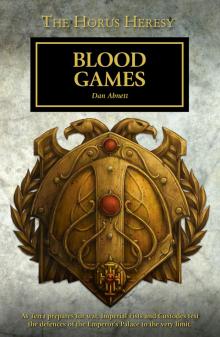 Blood Games - Dan Abnett
Blood Games - Dan Abnett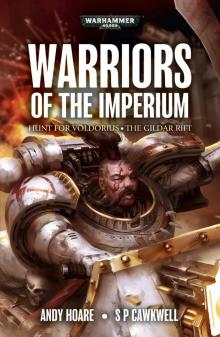 Warriors of the Imperium - Andy Hoare & S P Cawkwell
Warriors of the Imperium - Andy Hoare & S P Cawkwell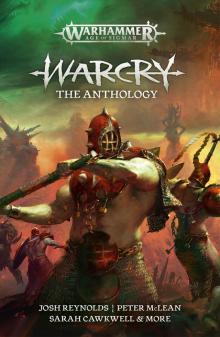 Warcry
Warcry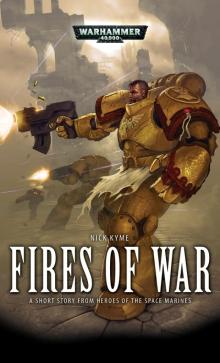 Fires of War - Nick Kyme
Fires of War - Nick Kyme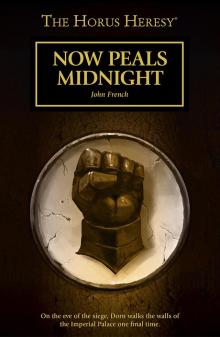 Now Peals Midnight - John French
Now Peals Midnight - John French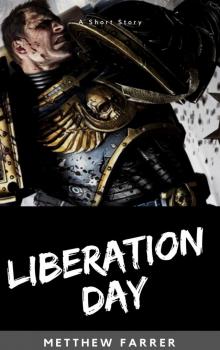 Liberation Day - Matthew Farrer
Liberation Day - Matthew Farrer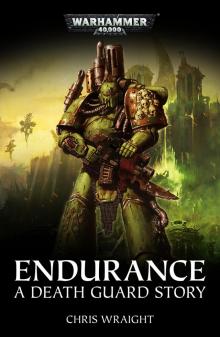 Endurance - Chris Wraight
Endurance - Chris Wraight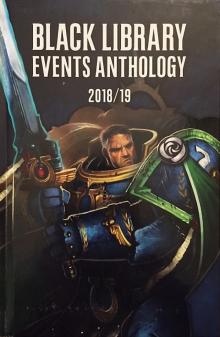 Black Library Events Anthology 2018-19
Black Library Events Anthology 2018-19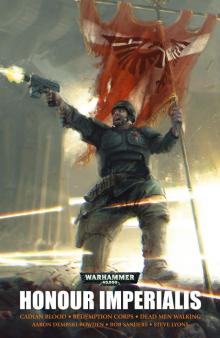 Honour Imperialis - Braden Campbell & Aaron Dembski-Bowden & Chris Dows & Steve Lyons & Rob Sanders
Honour Imperialis - Braden Campbell & Aaron Dembski-Bowden & Chris Dows & Steve Lyons & Rob Sanders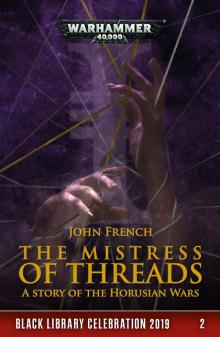 The Mistress of Threads - John French
The Mistress of Threads - John French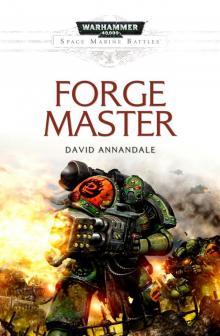 Forge Master - David Annandale
Forge Master - David Annandale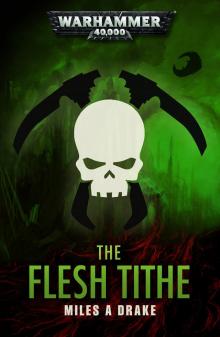 The Flesh Tithe - Miles A Drake
The Flesh Tithe - Miles A Drake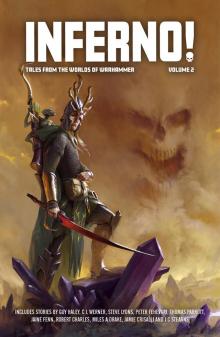 Inferno Volume 2 - Guy Haley
Inferno Volume 2 - Guy Haley Mercy of the Dragon - Nick Kyme
Mercy of the Dragon - Nick Kyme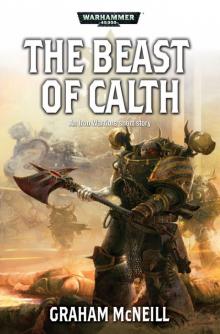 The Beast of Calth - Graham McNeill
The Beast of Calth - Graham McNeill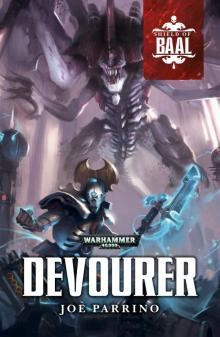 Devourer - Joe Parrino
Devourer - Joe Parrino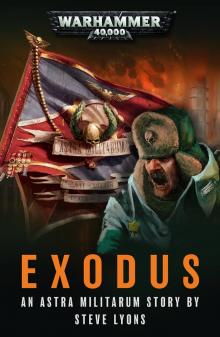 Exodus - Steve Lyons
Exodus - Steve Lyons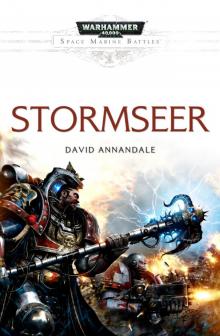 Stormseer - David Annandale
Stormseer - David Annandale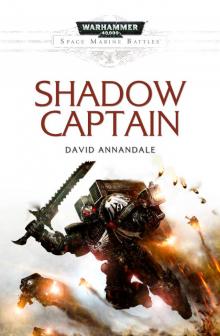 Shadow Captain - David Annandale
Shadow Captain - David Annandale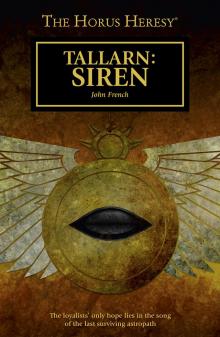 Tallarn- Siren - John French
Tallarn- Siren - John French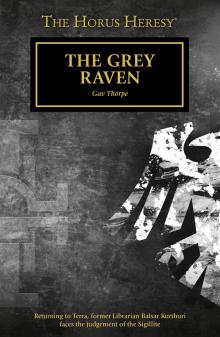 The Grey Raven - Gav Thorpe
The Grey Raven - Gav Thorpe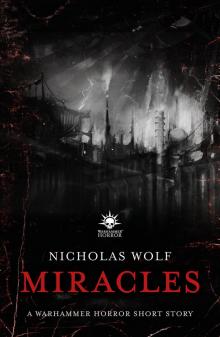 Miracles - Nicholas Wolf
Miracles - Nicholas Wolf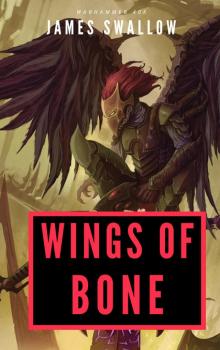 Wings of Bone - James Swallow
Wings of Bone - James Swallow